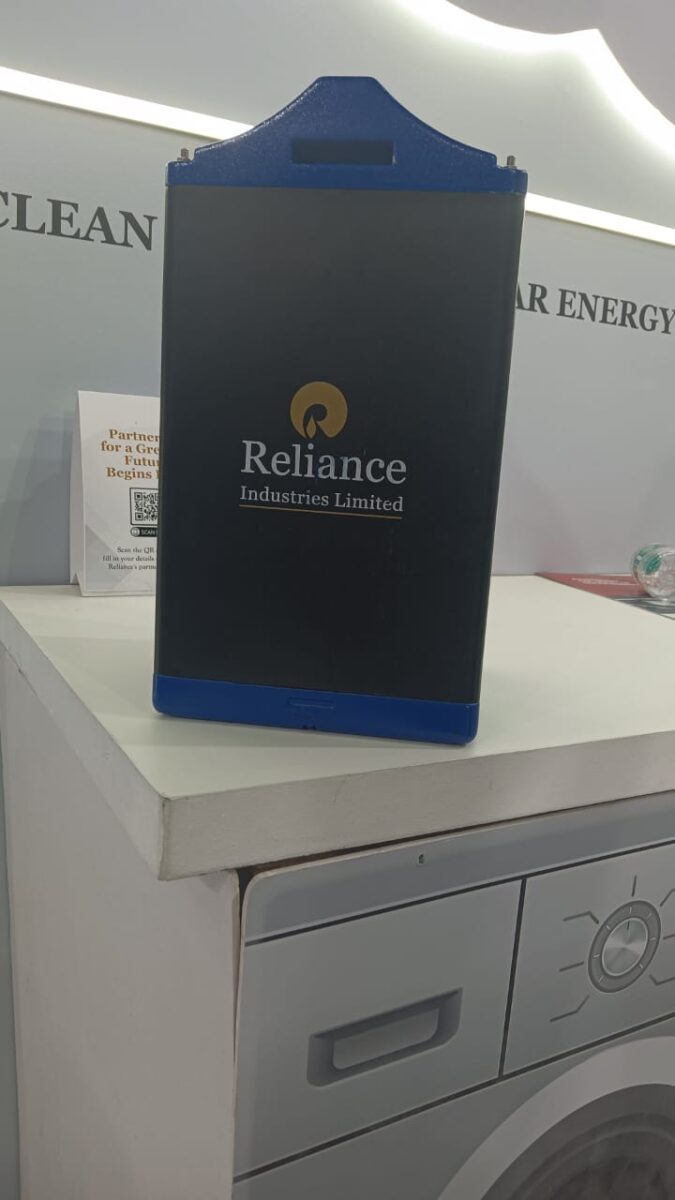Diversified business conglomerate Reliance Industries, which is setting up a fully integrated battery gigafab in Gujarat, has started trial runs of its swappable EV batteries with online grocer BigBasket in Bangalore. For now, the batteries are being made in-house with imported LFP cells, the company representatives told pv magazine.
Currently, the company is targeting the e-mobility market, especially electric two-wheelers, and has set up swappable battery charging stations in Bangalore. Using a mobile application, EV customers can locate the nearest swappable battery charging station and reserve it to swap their discharged battery with a fully charged one. Reliance is operating the battery stations.
The batteries can be charged with grid or solar power and paired with inverters to run home appliances.
Reliance has also developed a next-generation energy management system that will allow consumers to manage their electricity consumption and lower electricity bills. The device can do energy monitoring, energy management, and energy metering using an app. “It can take in the grid, your battery, solar power generation, DG, and home loads and manage which load should be powered from where and what needs to be charged,” said the company representatives.
Reliance Industries is betting on cobalt-free lithium iron phosphate (LFP) technology in addition to sodium-ion for its proposed fully integrated energy storage giga-factory in India. Following the acquisition of sodium-ion battery provider Faradion, Reliance Industries, through its arm Reliance New Energy Ltd, acquired Netherlands-headquartered LFP battery specialist Lithium Werks.
The Lithium Werks assets acquired by Reliance include its entire patent portfolio, manufacturing facility in China, key business contracts, and hiring of existing employees.
Reliance’s choice of LFP battery technology aligns with the global trend towards cobalt-free cathode chemistries, as cobalt availability and price volatility pose a challenge for manufacturing metal-oxide chemistry-based batteries like NMC and LCO. About 60% of the world’s cobalt supply is believed to come from the Democratic Republic of Congo (DRC). Further, cobalt mining has been linked to human rights abuses, corruption, environmental destruction, and child labor.
This content is protected by copyright and may not be reused. If you want to cooperate with us and would like to reuse some of our content, please contact: editors@pv-magazine.com.









2 comments
By submitting this form you agree to pv magazine using your data for the purposes of publishing your comment.
Your personal data will only be disclosed or otherwise transmitted to third parties for the purposes of spam filtering or if this is necessary for technical maintenance of the website. Any other transfer to third parties will not take place unless this is justified on the basis of applicable data protection regulations or if pv magazine is legally obliged to do so.
You may revoke this consent at any time with effect for the future, in which case your personal data will be deleted immediately. Otherwise, your data will be deleted if pv magazine has processed your request or the purpose of data storage is fulfilled.
Further information on data privacy can be found in our Data Protection Policy.